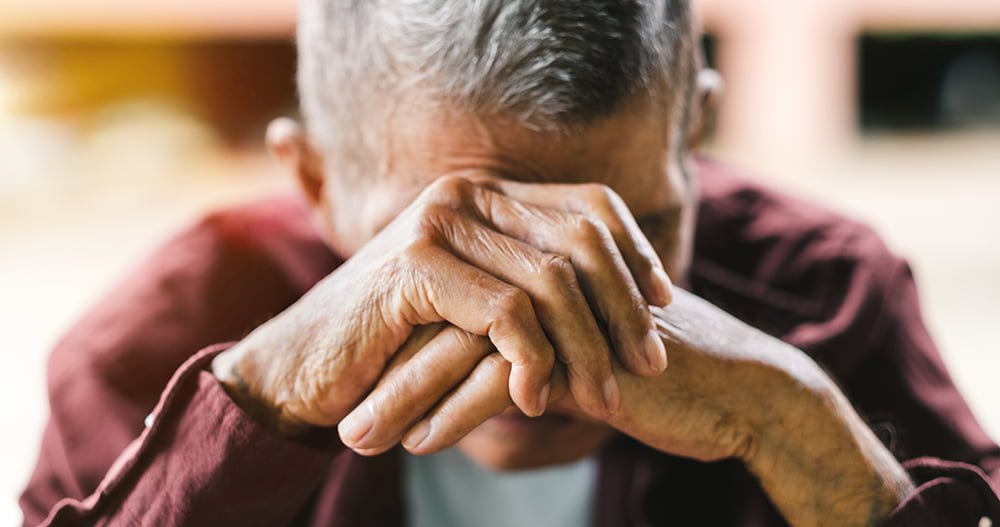- +234 816 717 6778
- Download our Brochure
- View our Government Approval Letter

Elder abuse is a social problem that is devastating for victims and their families. It is fairly common and indeed a worldwide issue. Global organizations such as the World Health Organization and International Network for Prevention of Elder Abuse (INPEA) have brought worldwide interest to the issue of elder abuse. As adopted by WHO, elder abuse is defined as “a single or repeated act, or lack of appropriate action, occurring within any relationship where there is an expectation of trust, which causes harm or distress to an older person.”
The problem of elder abuse is pervasive, showing up in various ways and forms across cultures and nations. It can come from various sources, such as people the older person knows, or has a relationship with such as spouses, family members, neighbours or friends, and indeed people the senior relies on for support services. Regardless of the form of abuse, one thing is very typical among all manner of abuse, which is the use of control and power by an individual to affect the status and well-being of an older individual.
In Africa, nay Nigeria, the issue of elder abuse has been on the front burner for a while now. Indeed it has become an important discourse, as family dynamics continue to change. In the past couple of decades, young economic migrants leaving their homes for other cities or countries in search of greener pastures, often keep their elderly loved ones in the care of other relations, paid domiciliary care or nursing homes. This has raised questions bordering on the quality of care and issues of abuse and neglect as it concerns their elderly loved ones.
Suffice it to say, the incidence of elder abuse in Nigeria is on the increase, although there seems to be no reliable data on this societal problem. The issue of elderly abuse continues to gain traction, especially with the advent of social media and the installation and use of monitoring equipments, like CCTV’s in private homes and elderly care facilities.
Abuse of older people comes in several ways, and these include:
Knowing the warning signs:
Recognizing the signs of abuse in the elderly is very key to preventing it and mitigating its effects through appropriate interventions. The different types of abuse have defining features associated with them.
Asides knowing the signs of abuse, it is also important for families, caregivers and service providers (e.g nursing care homes) to know what risk factors can predispose a senior to abuse, or increase their chances of being abused.
Families and caregivers should be well adjusted, with positive attitudes about aging, good coping strategies and social support. In addition, their mental, financial and emotional health is important, as a deficiency of these essential components can set the stage for elderly abuse.
Service providers, such as nursing care homes should be mindful of factors that can predispose the seniors in their care to abuse. These factors are multifaceted, revolving around operators (management) and staff. Meticulous hiring practices should be engaged at all times, to ensure adequate personnel, so that employees are not overworked, to prevent shoddy care, exhaustion and dissatisfaction. In addition, elderly care operators should guard against stressful working conditions for their personnel, high staff turnover rates and be wary of staff who act coldly or negatively towards the senior residents.
Preventing elder abuse may not always be possible at all times, but families and concerned adults can take proactive steps towards reducing the risk of abuse in the elderly, whether at home or in care facilities.
At home, abuse can stem from many reasons, and when the primary caregiver is stressed, overworked or untrustworthy, it makes abuse even more likely to happen. Therefore, it becomes imperative that families and friends should constantly reach out to both the senior and the caregiver. Families and friends can offer support in the following ways to reduce risk of elder abuse;
In an elderly care facility, families may not be able to monitor their elderly loved ones as closely as family caregivers, but they can still take steps to check abuse in such facilities. These steps include:
On their part, elderly care facilities can prevent elder abuse by:
(1) Installing quality monitoring systems.
(2) Creating policies that engender robust patient care and promote zero tolerance for elder abuse.
(3) Regular trainings for personnel on abuse and neglect issues in the elderly.
(4) Encouraging regular visits from social workers, volunteers and families.
In Nigeria, Rockgarden homes have been in the vanguard of elderly care services and a regular advocate against abuse and neglect in the elderly.
At Rockgarden homes, we pride ourselves as a home away from home for the elderly, and a trail blazer, when it comes to elderly care and support services. With our cutting edge elderly care services and support for families, Rockgarden homes, with its sister organization, Rockgarden Homecare Agency has carved a niche for itself for their unrivalled and unparalleled elderly care and support services. With absolutely no tolerance for elderly abuse in any form, the Rockgarden Homecare Agency has a painstaking recruitment process, where thorough background checks of potential staff are carried out. Employees also undergo regular trainings on elder abuse and neglect issues. These, in addition to quality monitoring systems such as CCTV’s and its very innovative Care Control mobile app, easily accessible to families, ensures that abuse and neglect are prevented from happening, as much as possible.
Rockgarden Homecare Agency is a standard and well-coordinated domiciliary care service provider. We offer preventive, curative, rehabilitative and palliative healthcare services to seniors in a systematic way that simulates bringing the hospital to the comfort of your home.